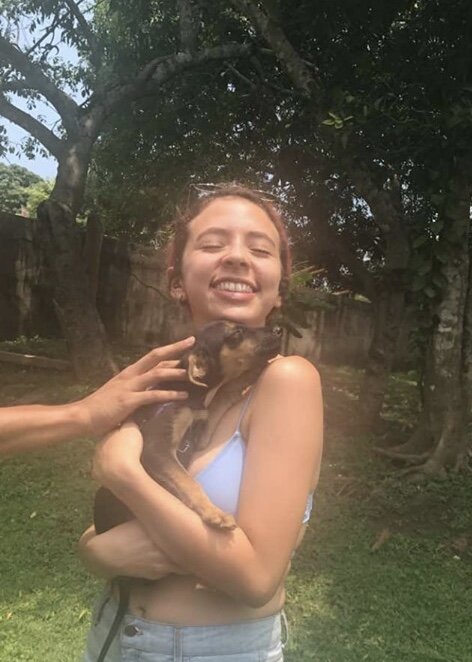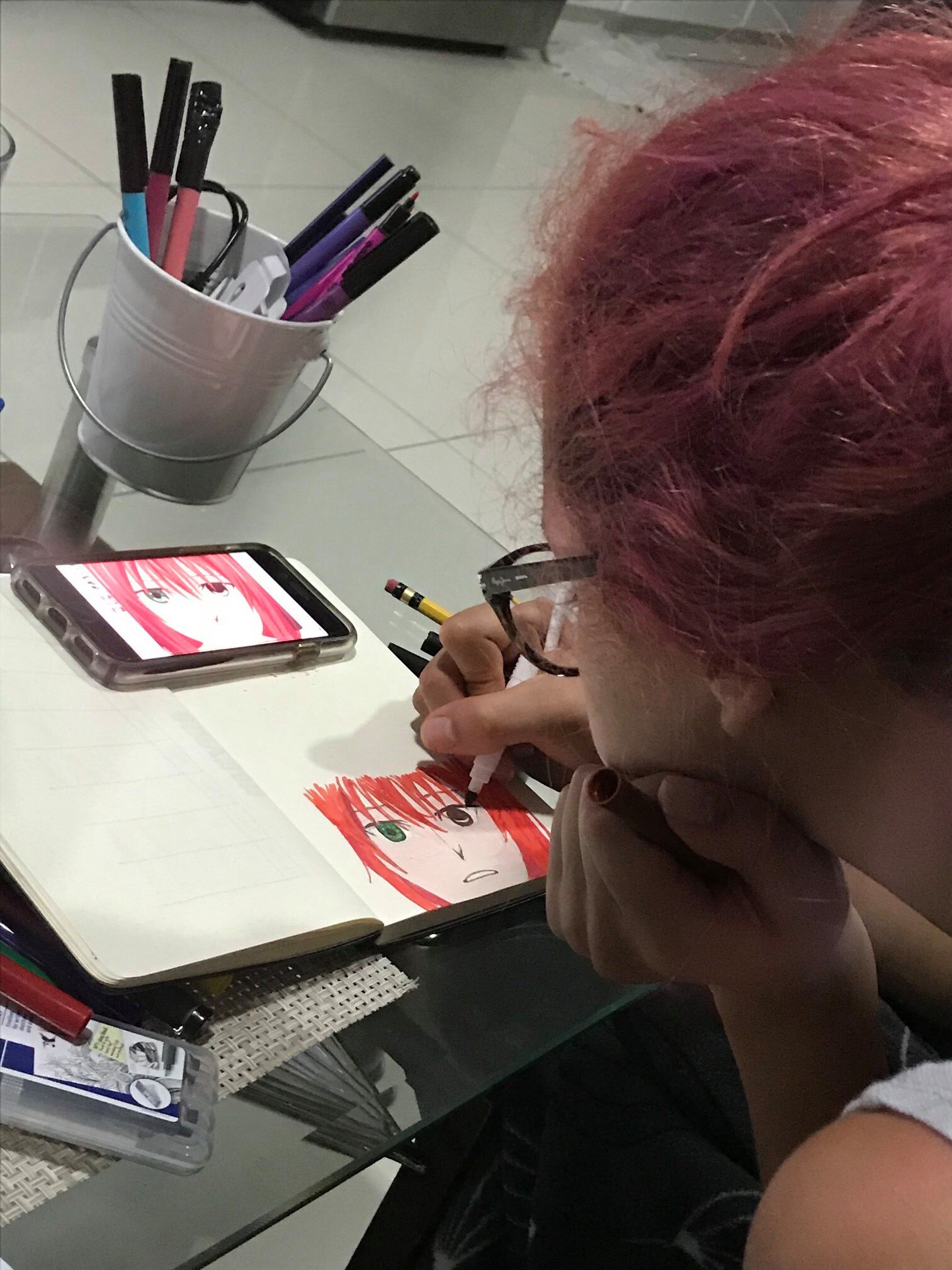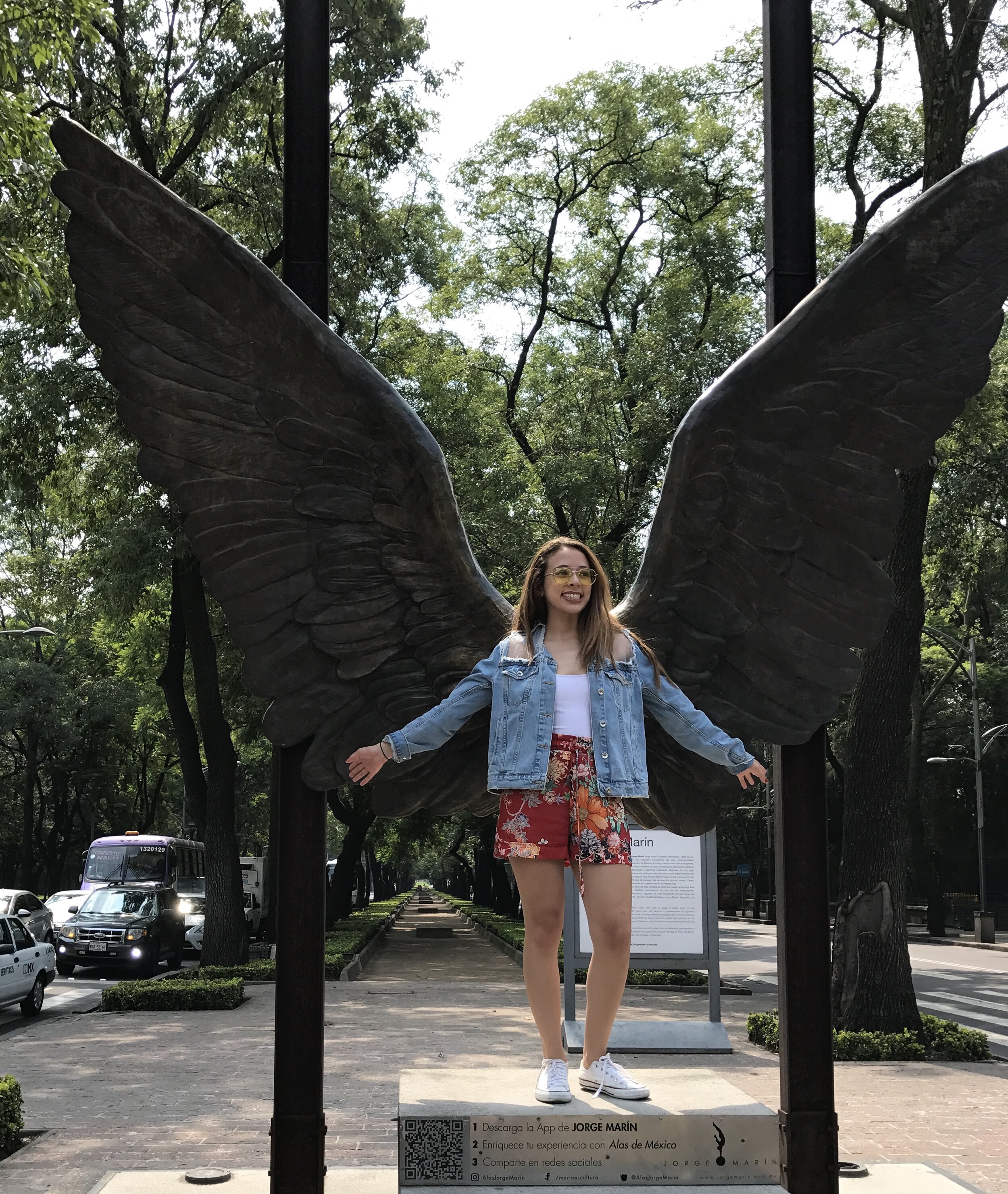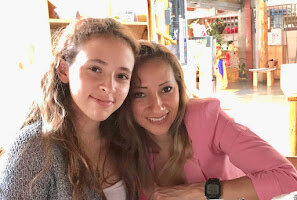Forever Amy
To the sweetest girl in the universe, our inspiration.
Who was Amy?
Ever since she was a little girl, my daughter Amy was a happy, generous, and deeply emphatic. She had a profound love for animals and always had a special connection with nature. There was always a dog, a cat, a bird in our home… or several of them! She was intelligent and also gifted, she loved to read, sing, and play the piano. We had a shared passion for reading and for music. When she was little, I had to read her favorite book at bedtime again and again. Growing up, one of the things we enjoyed the most, was going to a park, laying in the grass, and reading. I loved hearing her practice the piano, sometimes hours at a time. I would always applaud, and she would say “I need to practice more”.
As a teenager, her passion towards books and music only grew more and more. She also took on drawing and panting, mostly oil and watercolors. She lived in color and she surely demonstrated it in her personal style. She dreamt of dedicating her life to art. Her music taste also evolved, she grew a passion for 70’s and 80’s rock, she became a fan for bands such as The Beatles, Led Zeppelin, and Pearl Jam. She was definitely and “old soul”. She took pride on being a Costa Rican but had a huge interest in other cultures, so she started learning Japanese and Korean.
She continued growing her social conscience and rooting her values even deeper. She was vocally opposed against any sort of discrimination and the use of labels. She had a very strong position against ethnic, gender, or cultural slurs and was a true believer of equality. We used to have long conversations on the achievements of the feminist movement, and how as a society we still have a long way to go. Even though we didn’t see eye to eye on everything, we valued these conversations where we were able to “solve the world”. And of course, she went vegan for some time to help save the world!
Maybe her most memorable traits were her empathy and solidarity towards minorities, relegated people, people in distress, and misfits. I caught her several times crying over the suffering of a close friend. One night, she went out with her friends and ended up inviting a homeless person to join them for the night. Needless to say everyone was surprised. She had the ability to look at the human being before anything else, and to love anyone and everyone, unconditionally.
For the most part, Amy was a regular teenager, she felt strong rebellion against some “absurd” social norms, and was constantly seeking her independence. She was also extraordinary in the whole extent of the word. She left a deep impression on all of us who had the privilege of loving her and be loved by her. She taught us the true meaning of empathy, inclusion, and solidarity.
Our struggle with depression.
The first symptoms of depression started to appear during the high school early teenage years. In her attempts not to worry me, she tried to work on it herself. When she moved from high school to college, these symptoms worsened and it became impossible for her to keep them under hiding.
When she turned 17, she was diagnosed with major depression. During the next years, we fought together looking for the best options for treatment and trying to learn as much as possible about this disease. The process was extremely tough as it took us several months to get to an accurate diagnostic, it was also very hard to find empathetic professionals and pharmacological treatment that was served the purpose.
As a family, we constantly felt alone, misguided, disoriented, and with lots of unanswered questions. In 2017, while being in treatment, Amy had her first suicide attempt and that took us to the emergency room of a public hospital where we were denied attention as it “failed to qualify as an emergency”. It took us 3 days of struggle and a private psychiatrist’s reference, for Amy to be admitted in the psychiatric ward. This changed her forever.
She got to know other people, much older than her, also struggling with mental illnesses; several of which were in social risk or in extremely low income situations; whose only means of getting prompt and continuous help was hospitalization. Others who came from rural areas and some others who were teens whose parents were not supporting of the process. This opened her eyes to the great needs and the harsh reality that people with mental illnesses have to endure. Not to mention how traumatic it was for her to experience isolation and confinement.
It was during these times where her interest in helping ill-like people grew strong on her. We talked about the lack of aid in rural areas, of her dreams about a place where teens and young adults amidst a crisis could get the right treatment and attention, a safe environment that fosters recovery, surrounded by nature and animals, with constant contact and easy access to art and music.
Leaving the medical and cost struggles aside, we also had to face the stigma, the indifference, and ignorance around the topic. The acceptance of depression as an illness and not as a choice was opposed by family members and the social norm. Comments such as “she’s just slacking around”, “teenagers nowadays have everything and still can’t seem to be happy”, and other people simply shutting down and avoiding contact or the topic altogether. In the academia, the lack of empathy and protocols to justify and guide Amy through the periods or lessons she missed during a crisis, once Amy had to miss several weeks of college due to her admittance. All of this summed up to the emotional suffering, made our struggle harder and harder, both to her and myself. We were not fighting only against the illness, we were also fighting society and the whole system.
Even in this rocky road, Amy worked really hard seeking her wellbeing. She picked up college again, got a job, did her best on taking care of her diet and exercise. All those things that a healthy person takes for granted (getting up in the morning, a daily morning routine, daily chores, etc), are a massive effort for someone dealing with depression. She improved several areas of her life, she stopped being tired all the time, her sadness and emptiness decreased greatly. Amy was incredibly strong, however her major struggle was always inside her head.
In early 2019, she had a relapse with episodes of severe anxiety and depression. Amy died by suicide at the early age of 20, on June 19th, 2019. This day, The Amy Foundation was born.









